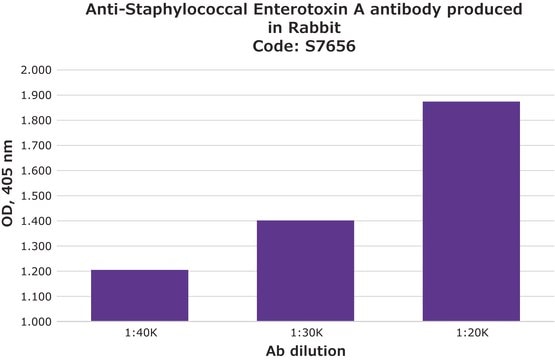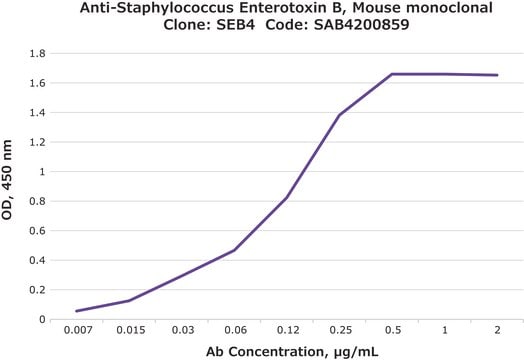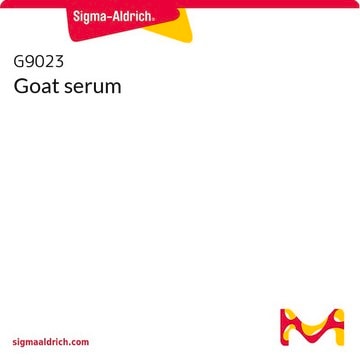S9008
Anti-Staphylococcal Enterotoxin B antibody produced in rabbit
fractionated antiserum, lyophilized powder
Synonyme(s) :
Rabbit Anti-SEB
About This Item
Produits recommandés
Source biologique
rabbit
Niveau de qualité
Conjugué
unconjugated
Forme d'anticorps
fractionated antiserum
Type de produit anticorps
primary antibodies
Clone
polyclonal
Forme
lyophilized powder
Espèces réactives
Staphylococcus aureus
Conditionnement
vial of 2 mL lyophilized antiserum
Technique(s)
indirect ELISA: 1:150,000-1:250,000
Température de stockage
2-8°C
Modification post-traductionnelle de la cible
unmodified
Description générale
Immunogène
Application
- to conjugate with hollow gold nanosphere and as a component of lateral flow immunoassay strip
- in antibody sandwich immunoassay
- for coupling with magnetic beads for detection assay
Actions biochimiques/physiologiques
Forme physique
Reconstitution
Clause de non-responsabilité
Vous ne trouvez pas le bon produit ?
Essayez notre Outil de sélection de produits.
Code de la classe de stockage
11 - Combustible Solids
Classe de danger pour l'eau (WGK)
WGK 3
Point d'éclair (°F)
Not applicable
Point d'éclair (°C)
Not applicable
Équipement de protection individuelle
Eyeshields, Gloves, type N95 (US)
Certificats d'analyse (COA)
Recherchez un Certificats d'analyse (COA) en saisissant le numéro de lot du produit. Les numéros de lot figurent sur l'étiquette du produit après les mots "Lot" ou "Batch".
Déjà en possession de ce produit ?
Retrouvez la documentation relative aux produits que vous avez récemment achetés dans la Bibliothèque de documents.
Les clients ont également consulté
Notre équipe de scientifiques dispose d'une expérience dans tous les secteurs de la recherche, notamment en sciences de la vie, science des matériaux, synthèse chimique, chromatographie, analyse et dans de nombreux autres domaines..
Contacter notre Service technique









